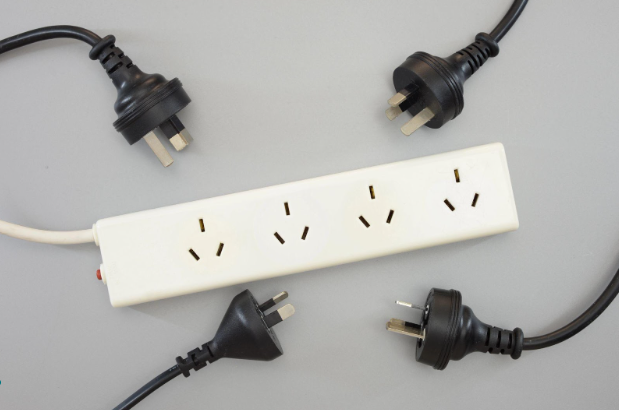Extension cords are indispensable tools in modern homes and workplaces, making it possible to power multiple devices when fixed outlets are out of reach. Like any electrical tool, the proper usage and maintenance of extension cords are crucial for safety and longevity. Without the proper care, they can pose significant risks and have a shortened lifespan. This guide explores the various aspects of extension cord usage and maintenance to ensure their extended, safe, and efficient functionality.
Understanding the Basics of Extension Cord Usage
Understanding the types and applications of extension cords is the first step in using them. Various kinds of extension cords are primarily categorised based on their intended usage.
Heavy-duty extension cords are designed for high-powered appliances like refrigerators and power tools. On the other hand, light-duty cords are suitable for smaller devices, such as lamps and fans. Indoor and outdoor extension cords differ in construction, with outdoor cords being made to withstand harsher conditions.
Choosing the right extension cord entails considering the device’s wattage and the cord’s rating. An incorrect match can lead to malfunctions or dangerous overheating. Extension cords should always be used in ideal conditions – dry locations, away from flammable objects, and without any tight knots that can potentially damage the wire’s integrity.
Safety Tips for Using Extension Cords
Improper use of extension cords can lead to severe hazards such as electric shocks and fires. The first key safety guideline for using extension cords is to avoid overloading them. Every cord has a maximum capacity, which should not be exceeded.
Additionally, it’s vital to handle extension cords correctly. For instance, one should never yank them from the socket by pulling the cord. Doing so can damage the plug or socket. Instead, remove it by holding the plug.
If an extension cord overheats or catches fire, the first action should be to unplug it if it is safe. Using water on an electrical fire is hazardous, so a fire extinguisher rated for electrical fires is essential to have on hand. These precautions may seem basic but significantly contribute to safe usage.
Regular Maintenance Practices for Extension Cords
Regular inspection of extension cords is vital in spotting any signs of wear and tear. Look for frayed wires, cracks in the insulation, or loose connections. Such issues can be minor initially but may pose substantial risks if left unattended.
Cleaning extension cords ensures they remain free of dust and debris, which can interfere with their functionality. A damp cloth can be used for wiping, but the cord must be unplugged and completely dry before reusing.
Repairing minor issues, like replacing a damaged plug or fixing a small tear in the insulation, is often straightforward. However, when dealing with more complex problems, it’s wiser to seek professional help. Electricians can assure you that repairs are made correctly and safely.
Storage Solutions for Extension Cords
Proper storage significantly prolongs the lifespan of extension cords. Haphazardly stored cords can become tangled, kinked, or otherwise damaged. Coiling them correctly is crucial – using the over-under method helps maintain the cord’s natural structure and prevents tangles.
The storage location should be cool, dry, and rodent-free. Moisture and pests can wreak havoc on the cords, causing unseen damage. Organisational tools, such as cord reels and hooks, can keep extension cords neat and accessible. Adopting these storage solutions reduces wear and tear, indirectly enhancing longevity.
Replacing and Recycling Extension Cords
Knowing when to replace an extension cord is crucial for safety. If a cord shows persistent signs of damage, emits a burning smell, or consistently fails to power devices, it needs to be replaced immediately. Ignoring these signs can lead to dangerous situations.
Recycling extension cords is both economically and environmentally beneficial. Recycling facilities can reclaim valuable materials like copper and reduce electronic waste. Many local councils and electronic stores offer recycling programmes for used extension cords.
When purchasing new extension cords, it is essential to understand their ratings and intended usage. Opting for high-quality, appropriately rated cords ensures safety and a longer service life.
Conclusion
This detailed guide has highlighted critical aspects of extension cord usage and maintenance. From understanding the basics to implementing safety tips and regular maintenance, each step plays a crucial role in extending the lifespan of extension cords. Proper storage, timely replacement, and recycling efforts contribute to cost savings and environmental safety.
Emphasising the importance of enhanced care for extension cords cannot be overstated. Implementing the provided tips will lead to safer, more efficient use of these indispensable tools, ensuring they remain a reliable part of everyday life.
